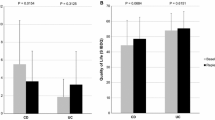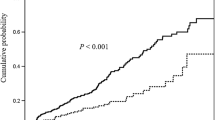Abstract
Background
There is some evidence for the role of vitamin D deficiency in the pathogenesis of inflammatory bowel disease (IBD) in the pediatric population. However, the results are contradictory. Therefore, we have conducted a systematic review and meta-analysis to evaluated the effect of vitamin D on pediatric patients with IBD.
Methods
We carried out a systematic search in databases from inception until 20 January 2022. We included all relevant articles that evaluate the efficacy and safety of vitamin D on disease activity, inflammatory factors, and vitamin D and calcium levels in pediatric patients with IBD. Random effects models were used to combine the data. The main outcomes were then analyzed using weight mean difference (WMD) and respective 95% confidence interval (CI).
Results
Fifteen treatment arms met the eligibility criteria and were included. Pooled estimates indicated that intervention with vitamin D has a significantly beneficial effect on 25-hydroxyvitamin D3 [25(OH) D3] (pooled WMD of 17.662 ng/mL; CI 9.77–25.46; P < 0.001), calcium (pooled WMD of 0.17 mg/dL; CI 0.04–0.30; P = 0.009), and inflammatory factors including C-reactive protein (CRP) (pooled WMD of −6.57 mg/L; CI −11.47 to −1.67; P = 0.009) and erythrocyte sedimentation rate (ESR) (pooled WMD of −7.94 mm/h; CI −12.65 to −3.22; P = 0.001) levels. In addition, this effect was greater for vitamin D levels at doses greater than 2000 IU, and when follow-up duration was more than 12 weeks.
Conclusion
This study showed that vitamin D therapy can have a significant and beneficial effect on 25(OH) D3, calcium, and inflammatory factors in children and adolescents with IBD.




Similar content being viewed by others
Data availability
Data are available on request due to privacy/ethical restrictions.
References
Rubalcava NS, Gadepalli SK. Inflammatory bowel disease in children and adolescents. Adv Pediatr. 2021;68:121–42.
Ye Y, Manne S, Treem WR, Bennett D. Prevalence of inflammatory bowel disease in pediatric and adult populations: recent estimates from large national databases in the United States, 2007–2016. Inflamm Bowel Dis. 2020;26:619–25.
Ananthakrishnan AN, Bernstein CN, Iliopoulos D, Macpherson A, Neurath MF, Ali RAR, et al. Environmental triggers in IBD: a review of progress and evidence. Nat Rev Gastroenterol Hepatol. 2018;15:39–49.
De Souza HS, Fiocchi C. Immunopathogenesis of IBD: current state of the art. Nat Rev Gastroenterol Hepatol. 2016;13:13–27.
Green N, Miller T, Suskind D, Lee D. A review of dietary therapy for IBD and a vision for the future. Nutrients. 2019;11:947.
Śledzińska K, Landowski P, Żmijewski M, Kamińska B, Kowalski K, Liberek A. Diet, sun, physical activity and vitamin D status in children with inflammatory bowel disease. Nutrients. 2022;14:1029.
Guzman-Prado Y, Samson O, Segal JP, Limdi JK, Hayee BH. Vitamin D therapy in adults with inflammatory bowel disease: a systematic review and meta-analysis. Inflamm Bowel Dis. 2020;26:1819–30.
Cantorna MT, Rogers CJ, Arora J. Aligning the paradoxical role of vitamin D in gastrointestinal immunity. Trends Endocrinol Metab. 2019;30:459–66.
Ng SC, Shi HY, Hamidi N, Underwood FE, Tang W, Benchimol EI, et al. Worldwide incidence and prevalence of inflammatory bowel disease in the 21st century: a systematic review of population-based studies. Lancet. 2017;390:2769–78.
Dankers W, Colin EM, Van Hamburg JP, Lubberts E. Vitamin D in autoimmunity: molecular mechanisms and therapeutic potential. Front Immunol. 2017;7:697.
Adams JS, Hewison M. Unexpected actions of vitamin D: new perspectives on the regulation of innate and adaptive immunity. Nat Clin Pract Endocrinol Metab. 2008;4:80–90.
Hradsky O, Soucek O, Maratova K, Matyskova J, Copova I, Zarubova K, et al. Supplementation with 2000 IU of cholecalciferol is associated with improvement of trabecular bone mineral density and muscle power in pediatric patients with IBD. Inflamm Bowel Dis. 2017;23:514–23.
Jantchou P, Mailhot G, Ezri J, Le Deist F, Deslandres C, Delvin E. P-102: Bioavailability and tolerance of high doses vitamin D in children with newly diagnosed Crohn’s disease. J Crohns Colitis. 2014;8:S432.
Lee R, Maltz RM, Crandall WV, Plogsted SW, Shaikhkhalil AK, Bowden SA, et al. Single high-dose vitamin D3 supplementation in pediatric patients With inflammatory bowel disease and hypovitaminosis D. J Pediatr Gastroenterol Nutr. 2020;70:e77–80.
Wingate KE, Jacobson K, Issenman R, Carroll M, Barker C, Israel D, et al. 25-Hydroxyvitamin D concentrations in children with Crohn’s disease supplemented with either 2000 or 400 IU daily for 6 months: a randomized controlled study. J Pediatr. 2014;164:860–5.
Moran-Lev H, Galai T, Yerushalmy-Feler A, Weisman Y, Anafy A, Deutsch V, et al. Vitamin D decreases hepcidin and inflammatory markers in newly diagnosed inflammatory bowel disease paediatric patients: a prospective study. J Crohns Colitis. 2019;13:1287–91.
Pappa HM, Mitchell PD, Jiang H, Kassiff S, Filip-Dhima R, DiFabio D, et al. Maintenance of optimal vitamin D status in children and adolescents with inflammatory bowel disease: a randomized clinical trial comparing two regimens. J Clin Endocrinol Metab. 2014;99:3408–17.
Page MJ, McKenzie JE, Bossuyt PM, Boutron I, Hoffmann TC, Mulrow CD, et al. The PRISMA 2020 statement: an updated guideline for reporting systematic reviews. Int J Surg. 2021;88:105906.
Stang A. Critical evaluation of the Newcastle-Ottawa scale for the assessment of the quality of nonrandomized studies in meta-analyses. Eur J Epidemiol. 2010;25:603–5.
Higgins J. Cochrane handbook for systematic reviews of interventions. Version 5.1. 0. The Cochrane Collaboration. 2011. https://training.cochrane.org/handbook/current.
Hozo SP, Djulbegovic B, Hozo I. Estimating the mean and variance from the median, range, and the size of a sample. BMC Med Res Methodol. 2005;5:13.
Higgins JP, Thompson SG, Deeks JJ, Altman DG. Measuring inconsistency in meta-analyses. BMJ. 2003;327:557–60.
Egger M, Smith GD, Schneider M, Minder C. Bias in meta-analysis detected by a simple, graphical test. BMJ. 1997;315:629–34.
Fletcher J, Cooper SC, Ghosh S, Hewison M. The role of vitamin D in inflammatory bowel disease: mechanism to management. Nutrients. 2019;11:1019.
Pappa HM, Mitchell PD, Jiang H, Kassiff S, Filip-Dhima R, DiFabio D, et al. Treatment of vitamin D insufficiency in children and adolescents with inflammatory bowel disease: a randomized clinical trial comparing three regimens. J Clin Endocrinol Metab. 2012;97:2134–42.
Shepherd D, Day AS, Leach ST, Lopez R, Messenger R, Woodhead HJ, et al. Single high-dose oral vitamin D3 therapy (stoss): a solution to vitamin D deficiency in children with inflammatory bowel disease? J Pediatr Gastroenterol Nutr. 2015;61:411–4.
Benchimol EI, Ward LM, Gallagher J, Rauch F, Barrowman N, Warren J, et al. Effect of calcium and vitamin D supplementation on bone mineral density in children with inflammatory bowel disease. J Pediatr Gastroenterol Nutr. 2007;45:538–45.
El Amrousy D, El Ashry H, Hodeib H, Hassan S. Vitamin D in children with inflammatory bowel disease: a randomized controlled clinical trial. J Clin Gastroenterol. 2021;55:815–20.
Li J, Chen N, Wang D, Zhang J, Gong X. Efficacy of vitamin D in treatment of inflammatory bowel disease: a meta-analysis. Medicine. 2018;97:e12662.
Gubatan J, Chou ND, Nielsen OH, Moss AC. Systematic review with meta-analysis: association of vitamin D status with clinical outcomes in adult patients with inflammatory bowel disease. Aliment Pharmacol Ther. 2019;50:1146–58.
O’Malley T, Heuberger R. Vitamin D status and supplementation in pediatric gastrointestinal disease. J Spec Pediatr Nurs. 2011;16:140–50.
Pappa HM, Gordon CM, Saslowsky TM, Zholudev A, Horr B, Shih MC, et al. Vitamin D status in children and young adults with inflammatory bowel disease. Pediatrics. 2006;118:1950–61.
Gombart AF, Borregaard N, Koeffler HP. Human cathelicidin antimicrobial peptide (CAMP) gene is a direct target of the vitamin D receptor and is strongly up-regulated in myeloid cells by 1, 25-dihydroxyvitamin D3. FASEB J. 2005;19:1067–77.
Wang TT, Dabbas B, Laperriere D, Bitton AJ, Soualhine H, Tavera-Mendoza LE, et al. Direct and indirect induction by 1, 25-dihydroxyvitamin D3 of the NOD2/CARD15-defensin β2 innate immune pathway defective in Crohn disease. J Biol Chem. 2010;285:2227–31.
Mora JR, Iwata M, Von Andrian UH. Vitamin effects on the immune system: vitamins A and D take centre stage. Nat Rev Immunol. 2008;8:685–98.
Boonstra A, Barrat FJ, Crain C, Heath VL, Savelkoul HF, O’Garra A. 1α, 25-Dihydroxyvitamin D3 has a direct effect on naive CD4+ T cells to enhance the development of Th2 cells. J Immunol. 2001;167:4974–80.
Zhang Y, Leung DY, Richers BN, Liu Y, Remigio LK, Riches DW, et al. Vitamin D inhibits monocyte/macrophage proinflammatory cytokine production by targeting MAPK phosphatase-1. J Immunol. 2012;188:2127–35.
Zhao H, Zhang H, Wu H, Li H, Liu L, Guo J, et al. Protective role of 1, 25 (OH) 2vitamin D3 in the mucosal injury and epithelial barrier disruption in DSS-induced acute colitis in mice. BMC Gastroenterol. 2012;12:1–14.
Hlavaty T, Krajcovicova A, Payer J. Vitamin D therapy in inflammatory bowel diseases: who, in what form, and how much? J Crohns Colitis. 2015;9:198–209.
Funding
This research was supported by grant No. 1401-1-249-57731 from the Tehran University of Medical Sciences. The funding body had no role in designing the study and did not take part in data collection, data analysis, interpretation of the data, or writing of the manuscript.
Author information
Authors and Affiliations
Contributions
RP, SMH: conception, design, statistical analysis, data collection, writing–original draft, supervision. MF, AH, ME, FF: data collection and writing–original draft. All authors approved the final version of the manuscript.
Corresponding author
Ethics declarations
Ethical approval
The study protocol was ethically approved by the Regional Bioethics Committee of Tehran University of Medical Sciences (No: IR.TUMS.CHMC.REC.1401.060).
Conflict of interest
No financial or non-financial benefits have been received or will be received from any party related directly or indirectly to the subject of this article.
Additional information
Publisher's Note
Springer Nature remains neutral with regard to jurisdictional claims in published maps and institutional affiliations.
Supplementary Information
Below is the link to the electronic supplementary material.
Rights and permissions
Springer Nature or its licensor holds exclusive rights to this article under a publishing agreement with the author(s) or other rightsholder(s); author self-archiving of the accepted manuscript version of this article is solely governed by the terms of such publishing agreement and applicable law.
About this article
Cite this article
Sohouli, M.H., Farahmand, F., Alimadadi, H. et al. Vitamin D therapy in pediatric patients with inflammatory bowel disease: a systematic review and meta-analysis. World J Pediatr 19, 48–57 (2023). https://doi.org/10.1007/s12519-022-00605-6
Received:
Accepted:
Published:
Issue Date:
DOI: https://doi.org/10.1007/s12519-022-00605-6




